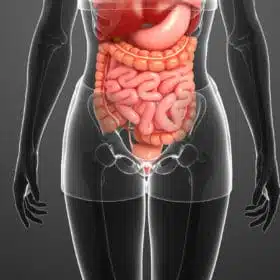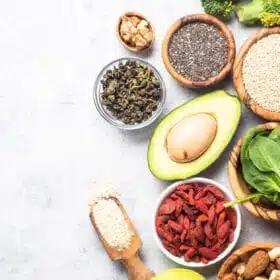A few decades ago, athletes were largely limited to simply making sure they ate a balanced meal after their workout. Today, even amateur athletes practice a true science when it comes to post-workout nutrition. Accordingly, it is not surprising that over the years numerous myths have developed around the optimal use of nutrients in the context of post-workout nutrition, some of which stubbornly persist to this day. In order to show you which measures are really useful and with which means you rather waste time and money, we will illuminate five widespread post-workout myths in this article and find out which of these five is based on true facts.
Myth 1 - Carbohydrates and protein must be supplied as quickly as possible
Most of us have heard something about the so-called anabolic window, which describes a time frame in which the body's own protein synthesis is significantly increased and our organism can process nutrients particularly efficiently. Contrary to the claim that exactly this window is only open for a comparatively short period of 60-90 minutes, in practice it turns out that the anabolic window is more like an anabolic barn door that is open for up to 48 hours. This means that you should supply your body with important proteins and carbohydrates as soon as possible, but this does not mean that this must necessarily happen within the shortest possible time. Furthermore, it is often suggested that large amounts of carbohydrates must be supplied immediately after strength training, as this is the only way to efficiently fill glycogen stores. Contrary to the assertion that carbohydrates are the decisive factor, however, proteins should be in the foreground for athletes in the context of the post-workout diet, since the body primarily needs BCAAs that have been consumed during training. In addition, you burn significantly less carbohydrates during strength training than you might think, so consuming loads of dextrose or maltodextrin post-workout is not necessary.
Myth 2 - It doesn't matter what protein you use
Of course, it is better to consume some form of protein than none at all, but if you want to achieve maximum success in the field of muscle building, you can't avoid choosing the right protein sources. Therefore, you should make sure that you consume mainly Whey protein after training, as it can be absorbed by your organism much faster than, for example, casein, whose amino acids enter the blood over a period of up to 7 hours. In addition, it is advisable to pay attention to a high BCAA content, since these special amino acids are increasingly consumed in the course of training.
Myth 3 - No fat immediately after training
This myth is at least partially true, as ingested dietary fat also significantly prolongs the absorption speed of fast-digesting Whey proteins, which counteracts the actual goal of post-workout nutrition. However, it should not go unmentioned that there is always some fat in both your stomach and intestines, so the absorption speed of your post-workout diet is also dependent on what you ate in the hours before. For example, if you've had a delicious omelet with bacon for breakfast, go straight to the gym, and accordingly have a fat-free post-workout shake about 2 hours later, the fact that it's fat-free won't do you much good because the fat still in your stomach will slow absorption anyway. As you can see, a fat-free post-workout diet does not necessarily have a great effect on the optimal and timely metabolization of proteins and carbohydrates.
Myth 4 - Glutamine is essential in the post-workout diet
Even though the glutamine level drops significantly in the course of training, the intake of glutamine, which supports your body, for example, in the context of regeneration, is not necessary immediately after training. Since the regeneration process lasts for several days, it is more important to supply your organism with sufficient amounts of glutamine over this period, for which it is already sufficient to consume glutamine-rich foods about 2-3 hours after training. Alternatively, you can of course also reach for a glutamine supplement if you find this more convenient.
Myth 5 - Antioxidants accelerate regeneration
It has been proven that foods such as berries, leafy vegetables and tomatoes, due to their high content of antioxidants, can contribute to the repair of oxidative damage to the muscles, which occurs during training, and recovery is significantly faster. The catch, however, is the fact that the need for antioxidants to be met in practice can hardly be satisfied by the consumption of food, which is why you have to resort to supplements to take advantage of this effect. Antioxidants are also involved in the absorption of many other essential micronutrients, so you will be doing yourself and your body a favor if you make sure to consume foods that have a correspondingly high concentration.




